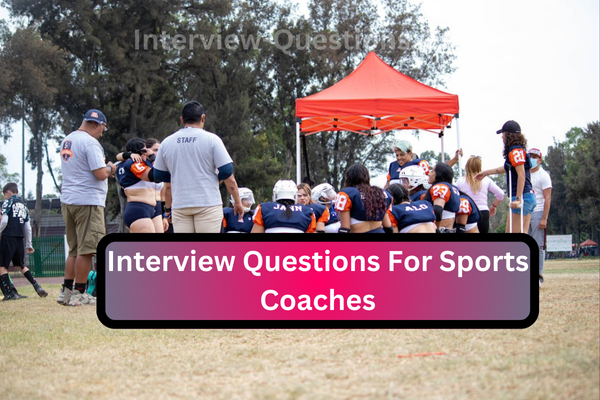Interviewing sports coaches requires a nuanced approach to uncover their philosophy, experience, and strategies. This article presents 61 comprehensive questions designed to help hiring committees evaluate candidates effectively.

61 Interview Questions For Sports Coaches
Covering aspects like coaching philosophy, team management, and personal development, these questions aim to reveal a coach’s ability to foster athletic talent, promote teamwork, and maintain a positive environment. Whether you are looking to fill a high school, college, or professional coaching position, these questions will facilitate insightful discussions that lead to informed hiring decisions.
Coaching Philosophy
- What is your coaching philosophy, and how does it influence your coaching style?
- How do you define success for your team?
- How do you balance the development of individual players with team success?
- What role do you believe a coach plays in the development of an athlete?
- How do you handle differing opinions about your coaching philosophy from players or parents?
Experience and Background
- What inspired you to become a coach?
- Describe your coaching experience and the levels at which you have coached.
- What are some of your most significant coaching achievements?
- Have you ever faced a challenging situation as a coach? How did you handle it?
- How do you stay current with coaching trends and techniques?
Team Management
- How do you build team chemistry among your players?
- What strategies do you use to motivate your team?
- How do you handle conflicts between players?
- What is your approach to selecting team captains or leaders?
- How do you involve parents in the development of their child as an athlete?
Training and Development
- What is your approach to developing a training plan for your team?
- How do you assess player performance and improvement?
- What techniques do you use to ensure athletes are injury-free?
- How do you incorporate strength and conditioning into your training program?
- How do you handle players who may not be as skilled as their teammates?
Game Strategy
- What is your approach to game preparation and strategy?
- How do you adapt your strategy during a game based on the opponent’s strengths and weaknesses?
- What is your process for analyzing game performance?
- How do you decide which plays or strategies to implement in a game?
- Can you give an example of a time when you made a significant tactical adjustment during a game?
Communication and Leadership
- How do you ensure effective communication with your athletes?
- What do you believe is the most important trait for a coach to possess?
- How do you encourage open dialogue with your players?
- What is your approach to giving feedback to your athletes?
- How do you celebrate team successes and individual achievements?
Discipline and Accountability
- How do you establish rules and expectations for your team?
- What is your approach to discipline when players break team rules?
- How do you hold athletes accountable for their performance and behavior?
- How do you handle a situation where a player is not meeting team expectations?
- What steps do you take to ensure a positive team culture?
Inclusivity and Diversity
- How do you ensure inclusivity and diversity within your team?
- What strategies do you use to coach athletes from different backgrounds?
- How do you address issues related to discrimination or bullying on your team?
- What is your approach to coaching female athletes compared to male athletes?
- How do you promote a sense of belonging among all team members?
Personal Development
- What do you do for your own professional development as a coach?
- How do you handle stress and pressure as a coach?
- What role do mentorship and networking play in your coaching career?
- How do you assess your own effectiveness as a coach?
- What are your long-term goals as a coach?
Situational Questions
- How would you handle a situation where a star player is not performing well?
- What would you do if a parent is upset about their child’s playing time?
- How would you manage a team that is experiencing a losing streak?
- What would you do if a player is struggling with confidence?
- How do you approach coaching during high-stakes competitions?
Future Vision
- Where do you see your coaching career in five years?
- What changes would you like to implement in your coaching approach in the future?
- How do you envision the future of the sport you coach?
- What legacy do you hope to leave as a coach?
- How do you plan to contribute to the development of your sport at a higher level?
Miscellaneous
- What is the most valuable lesson you have learned as a coach?
- How do you handle criticism from fans, media, or colleagues?
- What is your favorite coaching memory?
- How do you celebrate your team’s accomplishments?
- What advice would you give to a new coach just starting their career?
- How do you maintain a work-life balance while coaching?
Choosing the right coach is crucial for any sports program’s success. By utilizing these interview questions, you can gain valuable insights into candidates’ coaching philosophies and methods. Ultimately, the right fit will help develop not only skilled athletes but also a cohesive team dynamic.